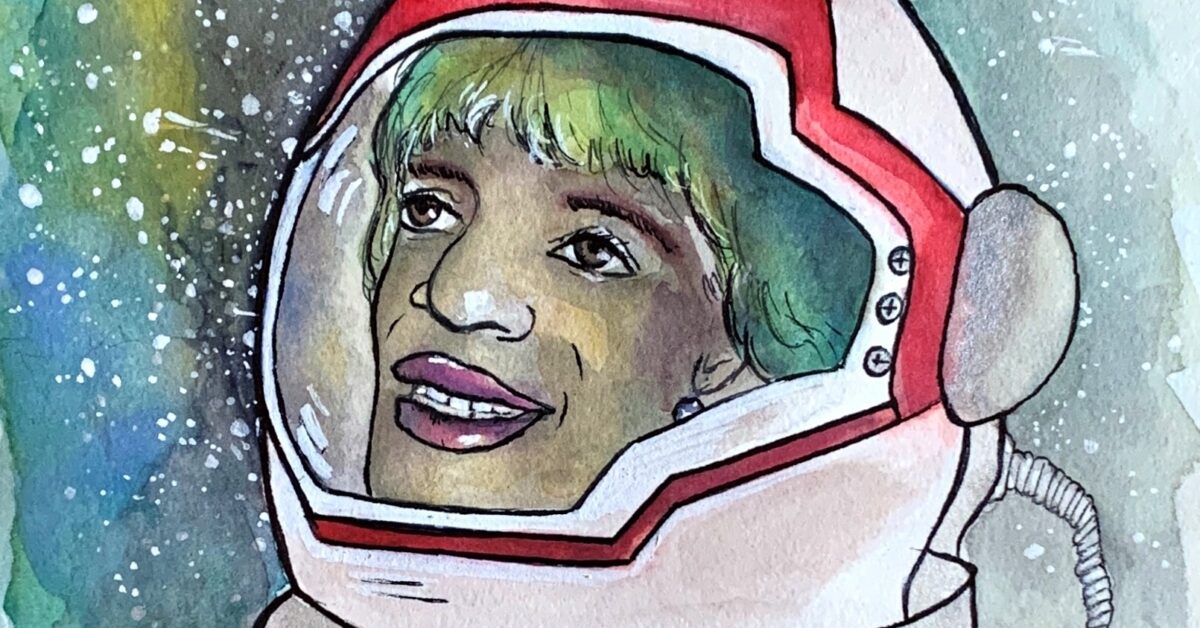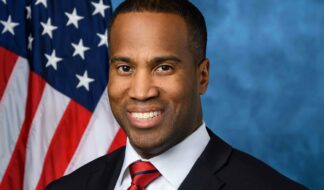From Samantha's HIV Test to Stonewall's First Brick: How LGBTQ+ Individuals Engage with Conspiracy Theories
Do we sometimes just need to make up stories to feel better about the world we live in?

I’m rewatching “Sex and the City,” and there's so much that's hard to believe: Carrie affording her apartment on a columnist's pay; Samantha avoiding an HIV test until the third season; anyone having feelings for Big (other than blinding rage). It's almost like the writers were paid by the NYC Tourism Bureau. Maybe I'm being paranoid, or maybe there's a conspiracy.
Across (my) town, a group of us gathered to watch something else that inspires belief in conspiracy: the Oscars. I was working my way through a "Manhattan Project" cocktail when another partygoer turned to me and asked, "Do you believe we landed on the moon?" I laughed and said I did. Then I saw the look on his face. The question hadn't been rhetorical.
"Hey, do you believe we landed on the moon?" I figured reflecting the question back at him might undo some damage. As he explained the reasons for his lunar doubt, I couldn't help but notice that this wasn't the face I expected for a conspiracy theorist. This was a sweet, fun-loving gay guy who'd voted for Barbie in every category of our little at-home Oscars viewing party. Questioning the Apollo 11 mission — a topic I think about infrequently — made me act defensive, even rude. I wondered: Why did talking about the moon make me act like such a Venus head?
Joshua Smith, a faculty member at Central Michigan University, chalks conspiracy theories up to not being doubtful enough. "So you think that there's this huge conspiracy of people who are keeping this big secret," Smith says. "Are people really that good at keeping secrets?" He's got a point. When people point to "big secrets" that have been revealed — like the Tuskegee Study or nuclear bomb testing in the Marshall Islands — they're pointing to Smith's proof. Secrets don't last long on this earth.
Back in Carrie's part of the world, Eliot Bornstein of New York University suggests that we all take on a "conspiratorial subject position" from time to time. In this position, we prioritize a good story over a rigorous examination of fact and logic. Bornstein gives the example of going to a musical and not bothering to ask how all the people of Yonkers just happen to greet Dolly Levi with the same song and dance in unison. Part of seeing a musical is expecting that things will be orderly and work together in a way that they really don't in the "real world."
For some people, conspiracy theories are like musicals — entertainment. Kelly Stevenson, a queer Detroiter who "grew up in a conservative family with Trump supporters," says they watch videos about conspiracy theories for fun and to learn about people with conservative viewpoints. Some conspiracies, like the idea that birds aren't real, are a diversion, Stevenson explains. "I don’t think that people are harmed with those and that’s the biggest thing for me."
When they aren't pure entertainment, conspiracies are "reworkings [of information] in the service of a pragmatic belief system," according to John Bodner at Memorial University of Newfoundland. It's pragmatic because it resolves a source of very real frustration: Life is fairly random at times, and other people can be hard to understand. It can be frightening to find the world changing around you, with no one specifically at the helm of those changes. “Hello Dolly” and fake birds both fix things for us, one way or another, by putting a shadowy (or technicolor) force at the center, working all sorts of irrational magic so that the world makes sense for once.
Back here on a messy earth, I texted my cocktail compatriot some questions about his unconventional views, and asked how people respond when he shares them. He answered my questions, but also said he appreciated being asked. In day-to-day life, people don't often solicit his thoughts on why he does what he does, and what it all means. His response suggests another reason conspiracy theories are meaningful to some.
All of us, I think, want to think critically, and to interrogate how this big old world comes together. Curiosity is pleasure, and conspiracy theories are a ready fuel for that pleasure. These theories are cheaper than college, more welcoming than a lecture hall and encourage the everyday gay to be a contributor.
Fashioning and re-fashioning history takes place in the mainstream, too. Each Pride season, someone claims that “Marsha P. Johnson threw the first brick at Stonewall!” Others — historians, eyewitnesses, Internet curmudgeons — counter that she wasn’t there when the riots started. Someone else threw the brick. Or maybe there was no brick. Rummaging through vague remembrances and partial records, we end up reviving something very real about that night: noise and disagreement. Something happened back in 1969 and, over time, it became important to many. It’s a symbol but, like all symbols, what it stands for is negotiable.
Without a doubt, conspiracy theories can be a vector of cruelty. From Holocaust denialism to the idea of "paid actors" at Sandy Hook to "transvestigations," simplifications of a troubled world make meaning by refusing to let other lives be meaningful or complicated. When conspiracy meets hate, genocidal thought often follows. YouTube debunking channels try to convert the conspiracy-minded and help the rest of us be properly doubtful. They use facts and evidence to prove we landed on the moon. I'm sure we did. It's easy to be certain about the moon — but not so easy to feel certain about life on this earth.









